Exploring Germany by car is always a good idea, in my book. The roads are great and toll-free, and there are many road trip routes in Germany that offer a wonderful blend of history, culture and nature. One route I’d always wanted to do is along the northern coast, connecting two of my favourite cities in Germany: Hamburg and Berlin. I’ve often heard great things about the Baltic coast, with its sandy beaches and nature parks, as well as the beautiful medieval architecture of towns like Lübeck and Rostock. So, when the opportunity arose, I didn’t have to think twice. I started planning my route and it turned out to be a fantastic one-week road trip in Northern Germany! Here’s what I did:

This route from Hamburg to Berlin takes you through medieval Hanseatic towns, fairytale castles, stunning Baltic Sea landscapes, and expansive forests. Spanning 650 km, I visited Lübeck, Wismar, Schwerin, Rostock, Stralsund, Rügen, Neubrandenburg and Neustrelitz, and explored UNESCO-listed sites and nature reserves. Many of these towns were part of the Hanseatic League, a medieval commercial and defensive network of merchant guilds and towns stretching from the Baltic coast to the North Sea. Formed in Germany in the late-12th century, the League expanded in the 13th-14th centuries to include other parts of northwestern Europe. During this period, important buildings in northern German Hanseatic cities were constructed in the Brick Gothic style. Many of these monuments can still be seen today.
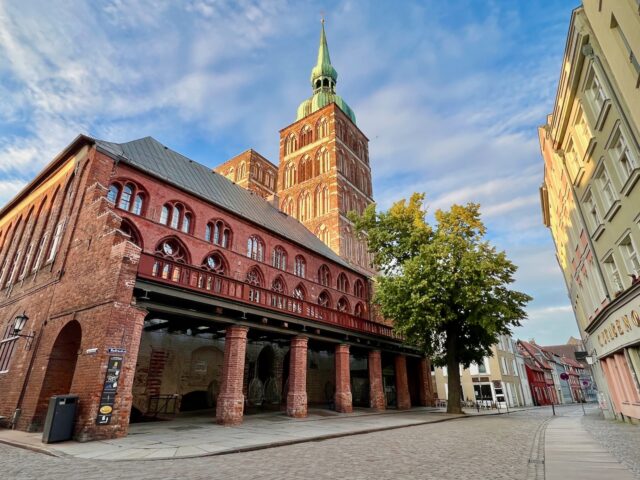
There are of course other places in northern Germany that I would’ve liked to visit, such as Bremen and Lüneburg, but considering the time I had (one week), I had to be selective.
The total driving distance of this route is ~650 km. I kept driving times to a minimum (the longest stretch was 2.5 hours) to allow myself more time to explore each place. I did this trip in one week but 10 days will allow you to spend more time in both Hamburg and Berlin. This was my itinerary:
- Day 1: Hamburg (1 night)
- Day 2: Lübeck and Schwerin (overnight in Schwerin)
- Day 3: Wismar and Rostock (overnight in Rostock)
- Day 4: Stralsund and Rügen (overnight in Rügen)
- Day 5: Rügen (overnight in Rügen)
- Day 6: Neubrandenburg and Neustrelitz (overnight in Neustrelitz)
- Day 7: Berlin
Here are the top places to visit in Northern Germany covered by this route, as well as things to do and see in each place.
1. Hamburg: The Gateway to the World
My adventure kicked off in Hamburg, Germany’s second-largest city, where I picked up my rental car. I’ve visited Hamburg several times before but it’s always a treat to explore the old town and the historic Speicherstadt (UNESCO-listed warehouse district).
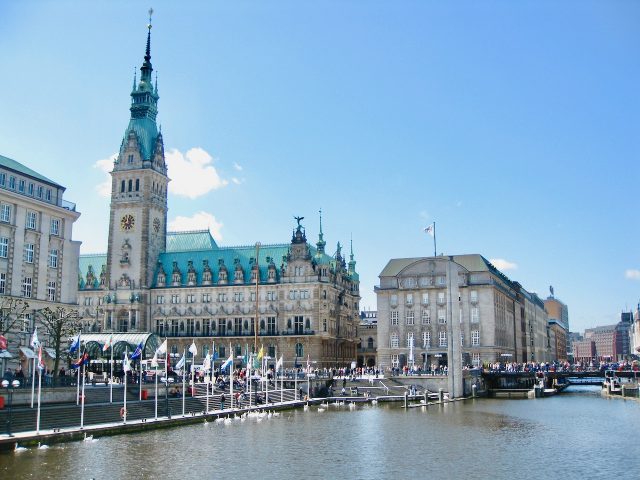
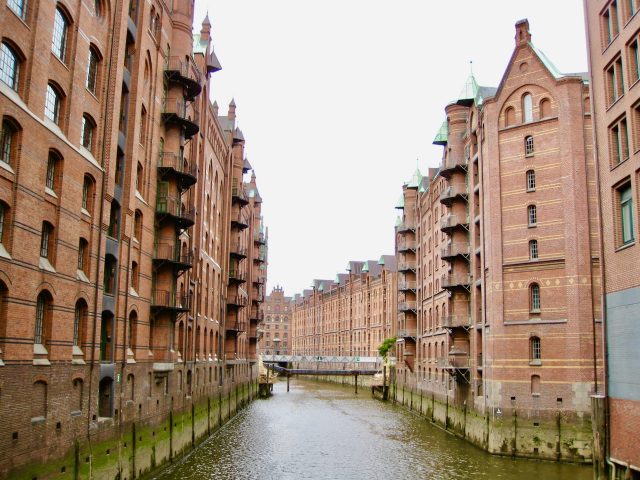
I also got to visit the futuristic Elbphilharmonie, and enjoy the lively atmosphere of Reeperbahn and St. Pauli. I can also recommend a harbour cruise to see the city from the water as well as admire the giant ships in the port. Read more about things to do in Hamburg. I recommend spending 2-3 nights in Hamburg. Search for accommodations in Hamburg.
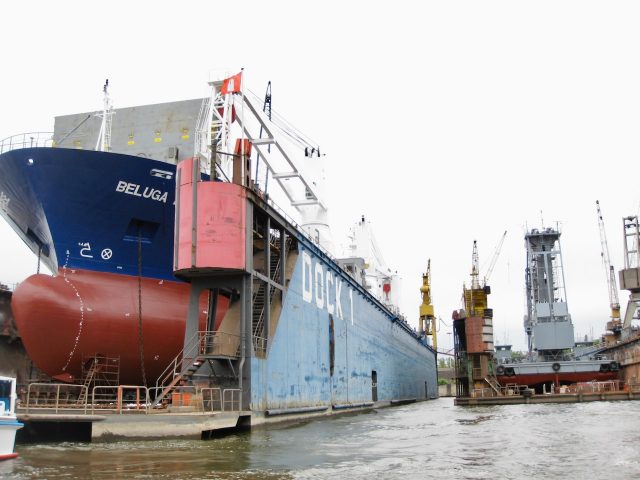
2. Lübeck: The Queen of the Hanseatic League
From Hamburg, I drove 70 km, or roughly 1-hour, to Lübeck. This city was high on my list of places to visit in northern Germany, and I wasn’t disappointed. Lübeck’s Brick Gothic architecture and well-preserved medieval old town make it a must-visit.
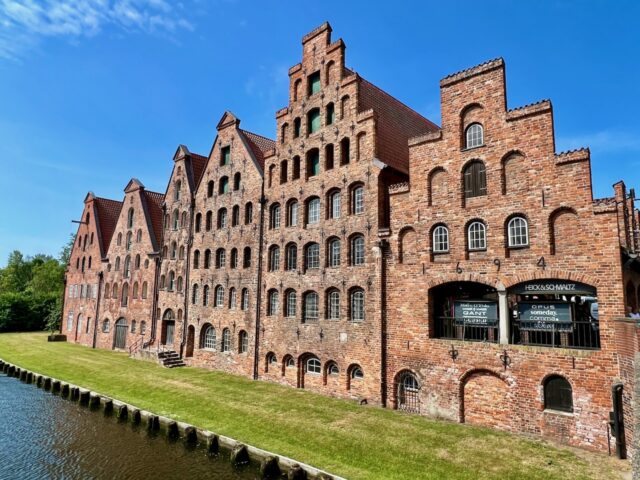
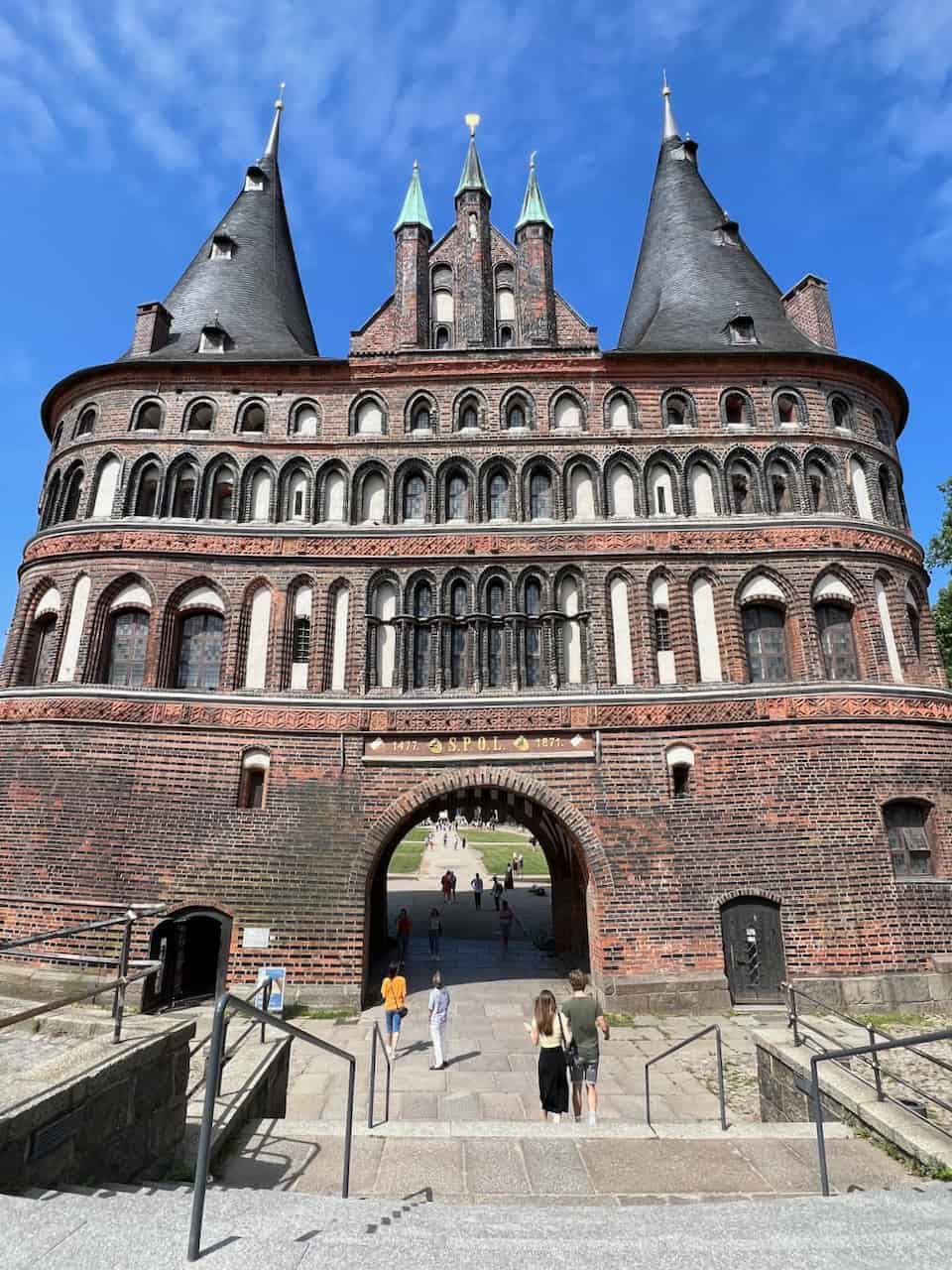
Highlights include the Salzspeicher, Holstentor Gate, St. Mary’s Church, and the historic Town Hall. Don’t leave without trying Lübecker Marzipan at the famous Niederegger Café. Read more about things to see in Lübeck (includes a walking route). Lübeck can easily be seen in a day on foot, or you can join a guided tour along the historic highlights and hidden courtyards.
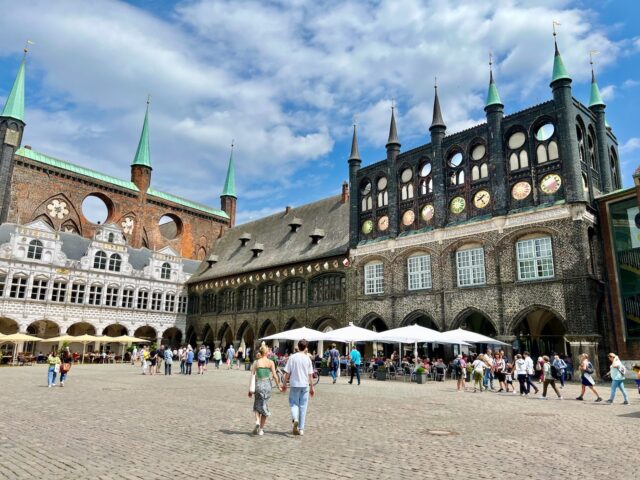
3. Schwerin: The Fairytale City
I continued my road trip to Schwerin, approximately 73km or a 1+ hour-drive from Lübeck. If you enjoy walking in nature, I suggest visiting the nearby Schaalsee, a UNESCO Biosphere reserve. There are numerous walking paths through the moorlands and forests, and past beautiful lakes.
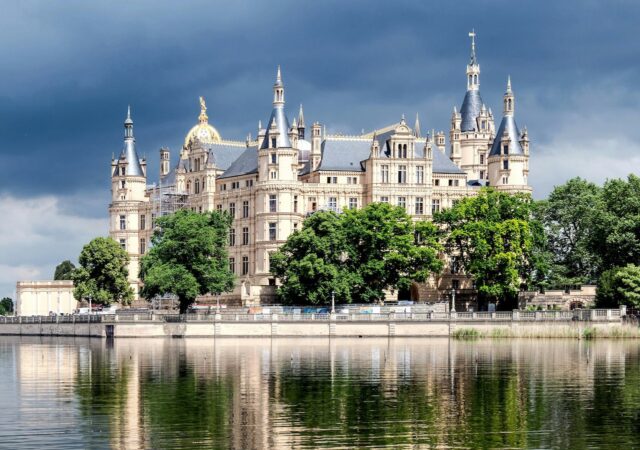
Schwerin is best known for its stunning castle, often called the ‘Neuschwanstein of the North’. Walk around Schwerin Castle and its gardens, visit the Schwerin Cathedral, and enjoy a relaxing lakeside stroll. I suggest spending a night in Schwerin. You can also join a guided tour of Schwerin.
4. Wismar: A Hidden Baltic Gem
My next stop was Wismar, a historic town north of Schwerin (30km or a 30+ minute drive). Wismar is a UNESCO-listed town that showcases Hanseatic architecture and a picturesque harbour. Like much of Germany’s Baltic coast, Wismar was part of Sweden for several centuries until the 19th century. Traces of this Scandinavian past can still be seen today.
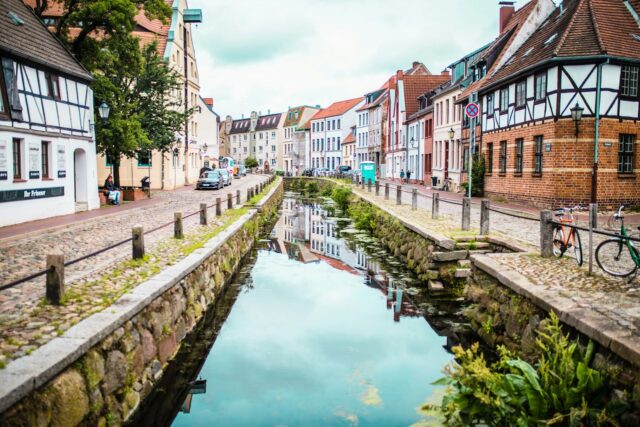
The highlights of Wismar include the Altstadt (old town, with its Brick Gothic architecture); Marktplatz, one of the largest medieval market squares in northern Germany – look out for the beautiful Wasserkunst fountain and the Alter Schwede house; the 15th century St. Nikolai Church, Wassertor (a Gothic harbour gate), the Welt-Erbe Museum (World Heritage Museum) and the fascinating City History Museum.
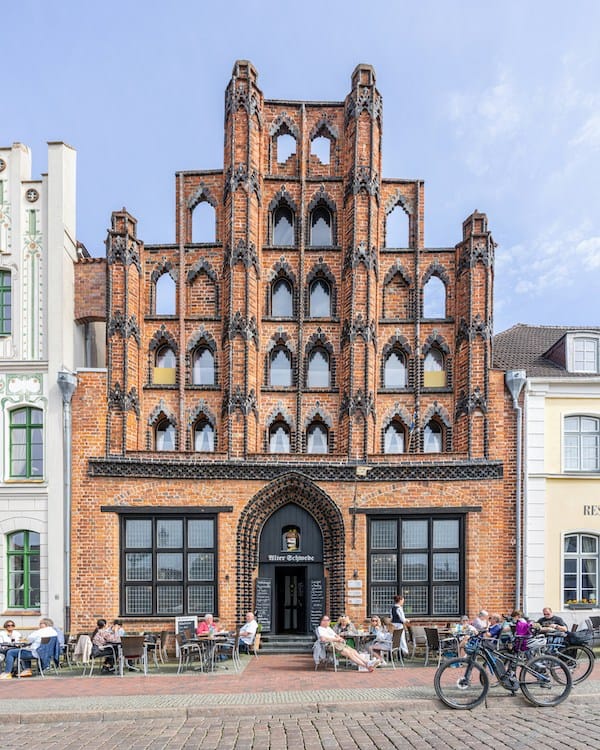
I also recommend a stroll around the harbour, where you can grab a fischbrötchen (fish sandwich), a specialty in this part of Germany.
5. Rostock: A Historic Port City
From Wismar, I drove 62km (< 1 hour) to Rostock, a vibrant Hanseatic city with a historic university, medieval buildings, and a lively harbour. It’s a small city that’s especially popular with Germans in the summer who come here to wander its charming streets and enjoy the beaches of nearby Warnemünde.
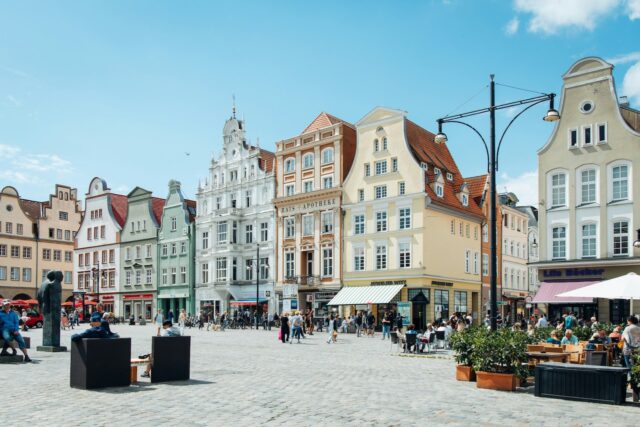
Visit the 16th century St. Mary’s Church and admire the astronomical clock; the lovely Universitätsplatz (University Square); Kröpeliner Tor (the last remaining medieval tower gateway) and the nearby remnants of the old city walls; and Neurmarkt (New Market). You can also join a guided tour of Rostock. I recommend spending a night in Rostock. Search for accommodations in Rostock.
If you enjoy a beach stroll, head to Warnemünde, where you can enjoy the beach and climb the lighthouse.
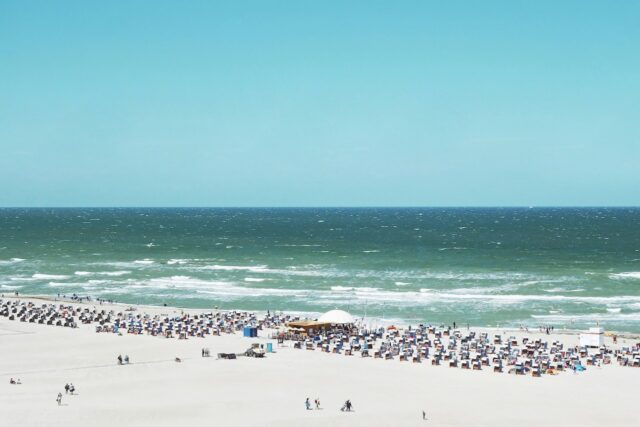
If you have more time to spare, I suggest driving northeast from Rostock along the Baltic coast to the Vorpommersche Boddenlandschaft National Park. This expansive national park is home to a great variety of birdlife, dunes, lagoons and wild beaches.
6. Stralsund: Gateway to the Baltic Sea
My next stop was Stralsund, a lovely Hanseatic town roughly 75km or a 1+ hour drive from Rostock. Stralsund’s UNESCO-listed old town features medieval brick buildings, colourful gabled houses and a picturesque harbour.
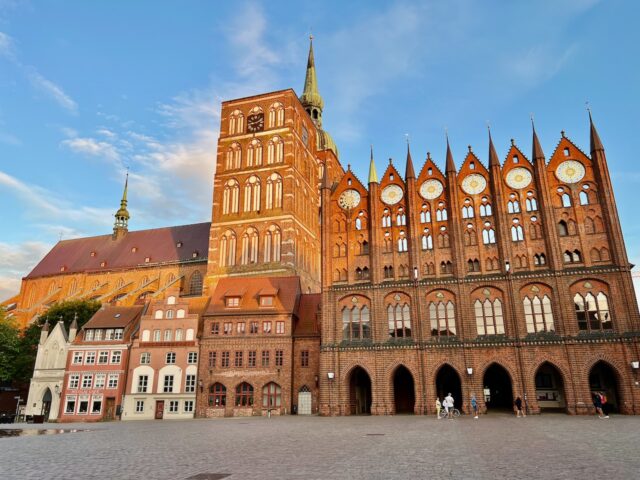
Visit the harbourfront, where you’ll also find the Ozeaneum (Oceanarium). Then make your way into the old town and explore the Alter Markt, surrounded by impressive Hanseatic buildings such as the Rathaus (City Hall).
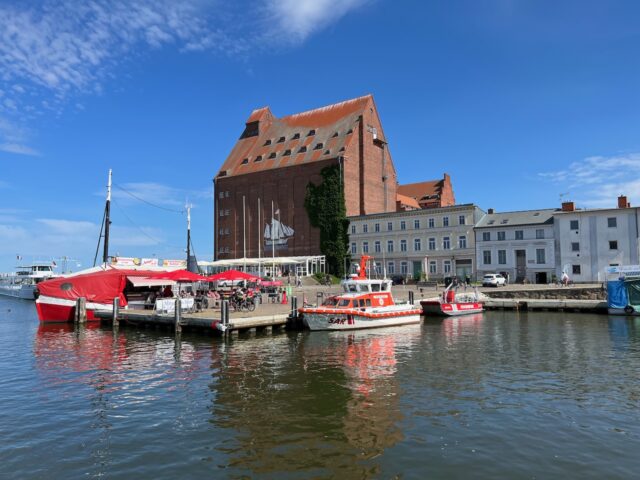
Read more about things to see in Stralsund (also includes a walking route). Stralsund can easily be covered in a day. You can choose to spend a night in Stralsund or continue to the island of Rügen, which is connected by a bridge with Stralsund.
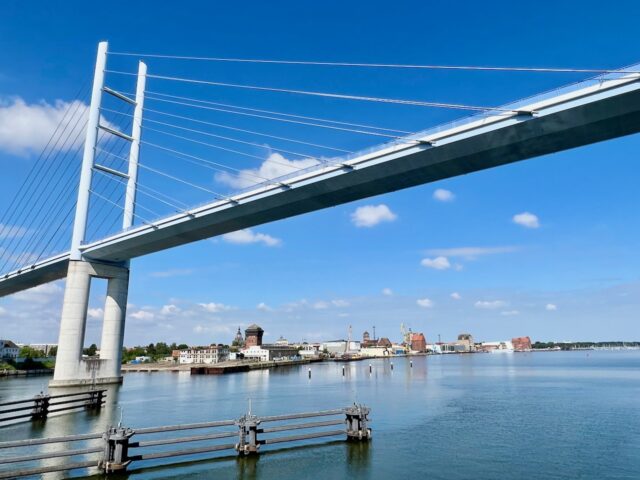
7. Rügen: Cliffs, Beaches and Forests
Rügen, Germany’s largest island, is famous for its white chalk cliffs in Jasmund National Park, lush forests, sandy beaches and lagoons. It sure was a pleasure to drive around the ever-changing landscapes of Rügen.
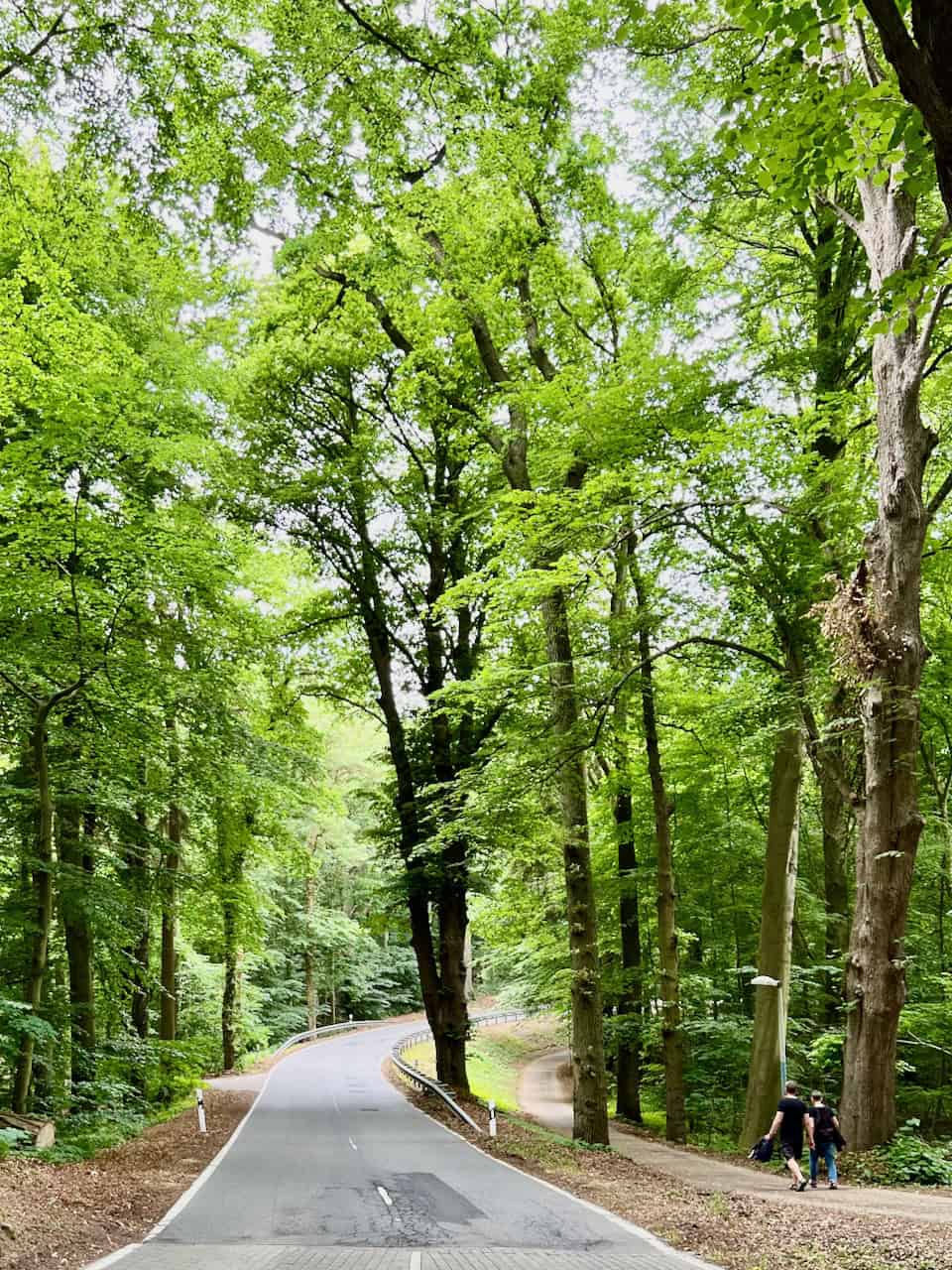
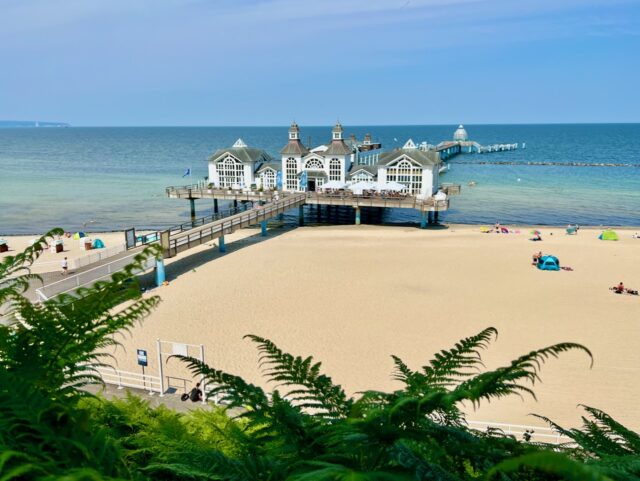
Visit the resorts of Binz and Sellin, stroll through the Prora Nazi-era complex, climb the impressive Baumwipfelpad (treetop path) and visit charming towns such as Putbus and Vitt. Read about about the best places to visit in Rügen (includes a road trip route around the island).
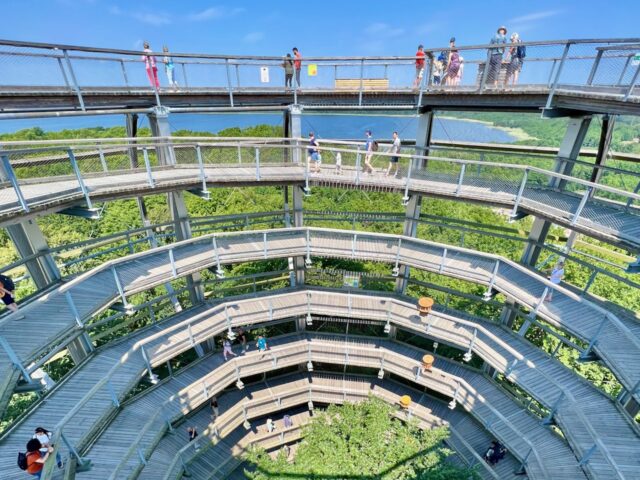
I suggest spending 2-3 nights in Rügen, in places such as Putbus or Sellin. I made Putbus (the ‘white town’) my base. It’s located 32km from Stralsund or a 30+ minute drive.
8. Neubrandenburg: The City of Four Gates
From Rügen, I headed in a southerly direction towards Berlin. My first stop was Neubrandenburg, about 130km/1.5 hours from Rügen. Neubrandenburg is famous for its medieval city wall, one of the best-preserved in Germany, and its four imposing gates. Don’t miss the impressive Friedland Gate and the adjacent city walls, the gorgeous 13th century St. Mary’s Church and the lively Marktplatz.
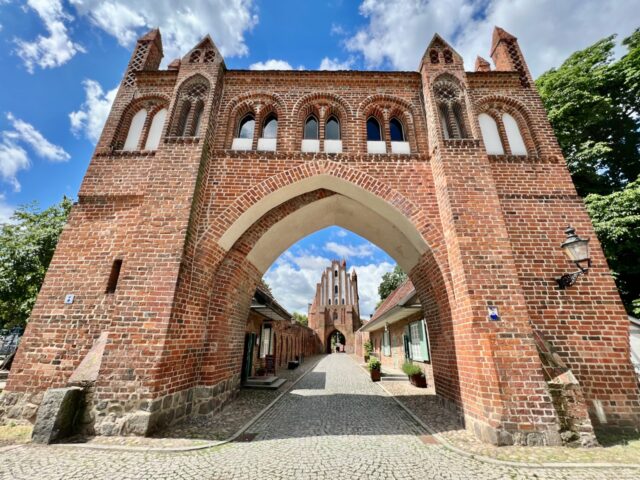
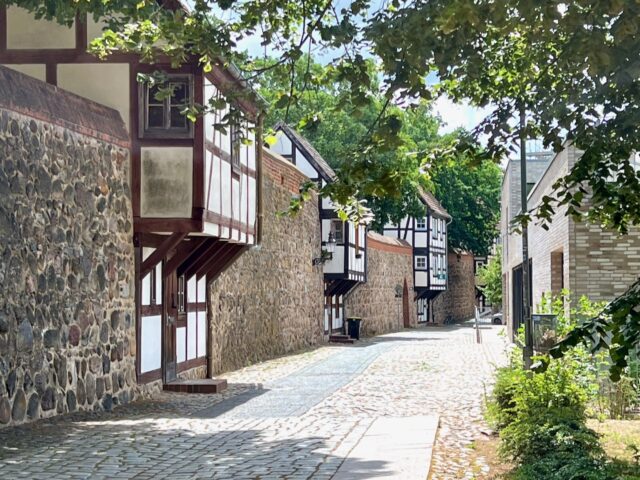
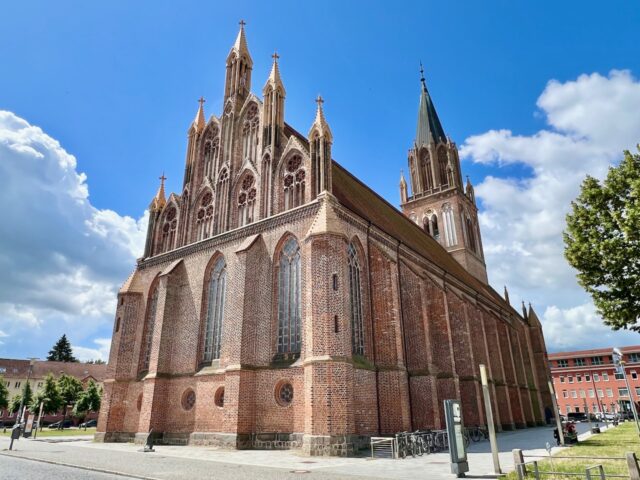
9. Neustrelitz: The Heart of Mecklenburg’s Lake District
Continuing from Neubrandenburg, it’s a lovely 30-minute drive past the Tollensesee (Tollen lake) and lush forests to Neustrelitz. Once the capital of the Duchy of Mecklenburg-Strelitz, Neustrelitz has a serene lakeside setting and a town centre in the Baroque style. Visit the Schlosspark and the neo-Gothic Schlosskirche (Palace Church) and stroll along the beautiful Zierkersee (Zierker lake).
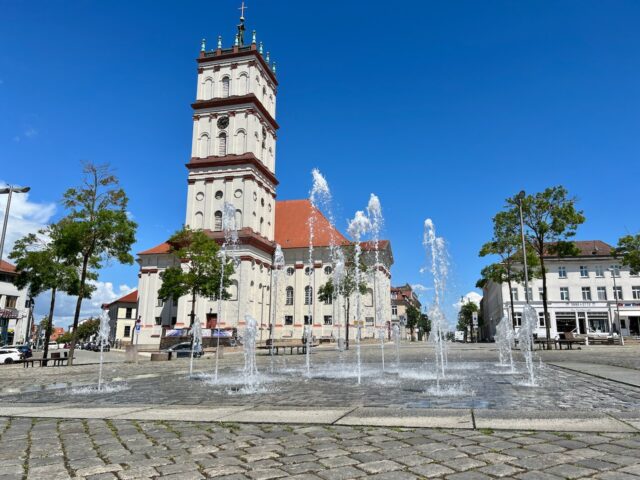
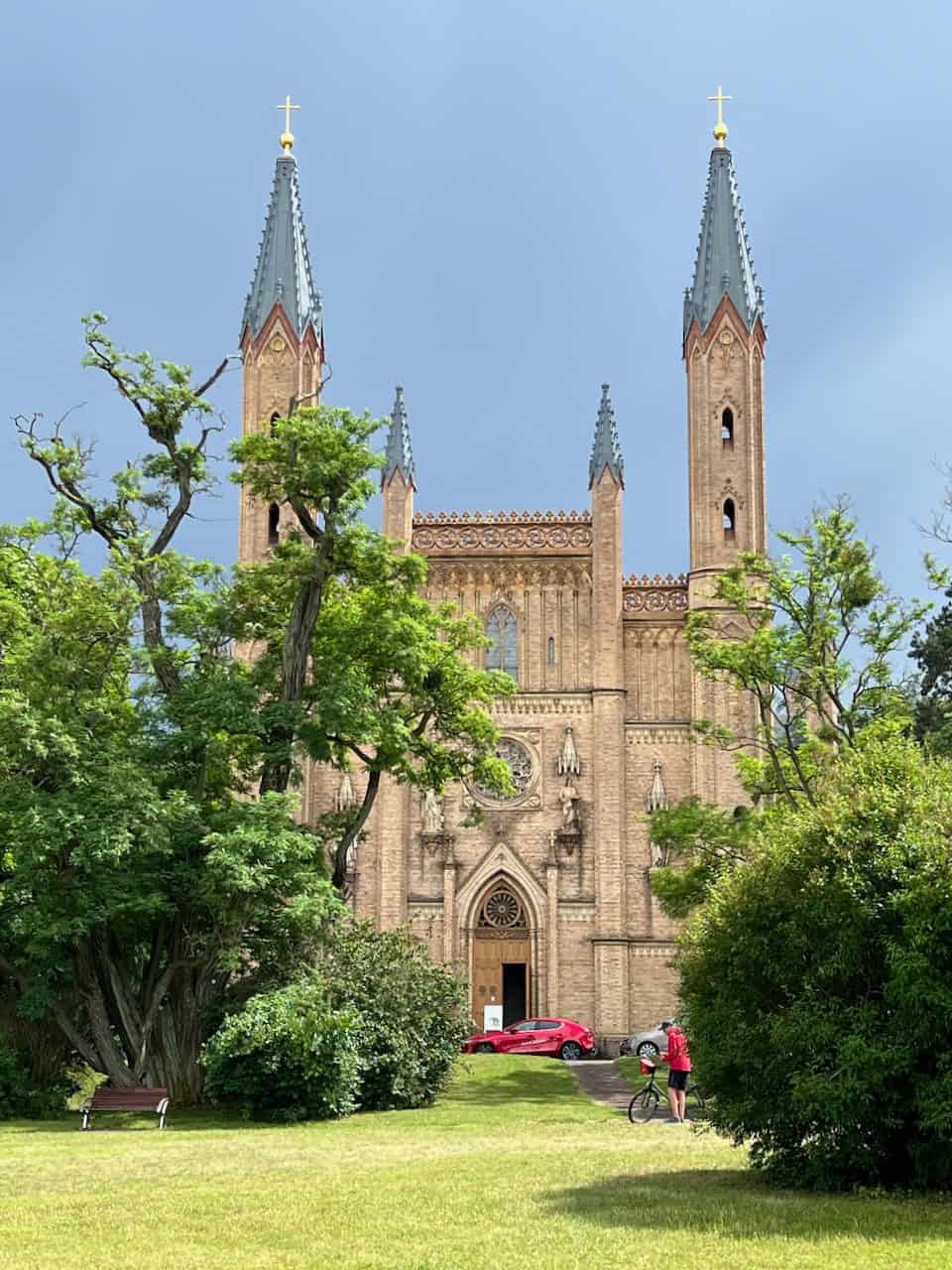
Less than a 30-minute drive from Neustrelitz lies Müritz National Park, a paradise for bird-watching and hiking.
Neubrandenburg and Neustrelitz can be visited in a day. You can choose to drive on to Berlin or spend a night or two in the Neustrelitz area. Berlin is about a 2-hour drive away.
10. Berlin: The Vibrant Capital
My northern Germany road trip ended in Berlin, Germany’s vibrant capital. I’ve been to Berlin many times so I headed straight to the airport where I dropped off my rental car. However, I highly recommend spending a few days in this amazing city. Search for accommodations in Berlin.
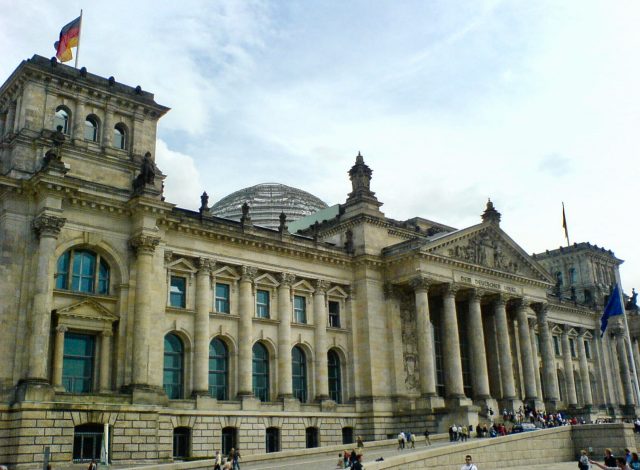

Explore the city’s rich history with visits to Brandenburg Gate, Reichstag, the Berlin Wall, Museum Island and Berlin Cathedral. Check out my post about how to spend a few days in Berlin. If you have more time to spare, consider visiting nearby Potsdam as well. Famous for its palaces and historic old town, Potsdam is an easy day trip from Berlin.
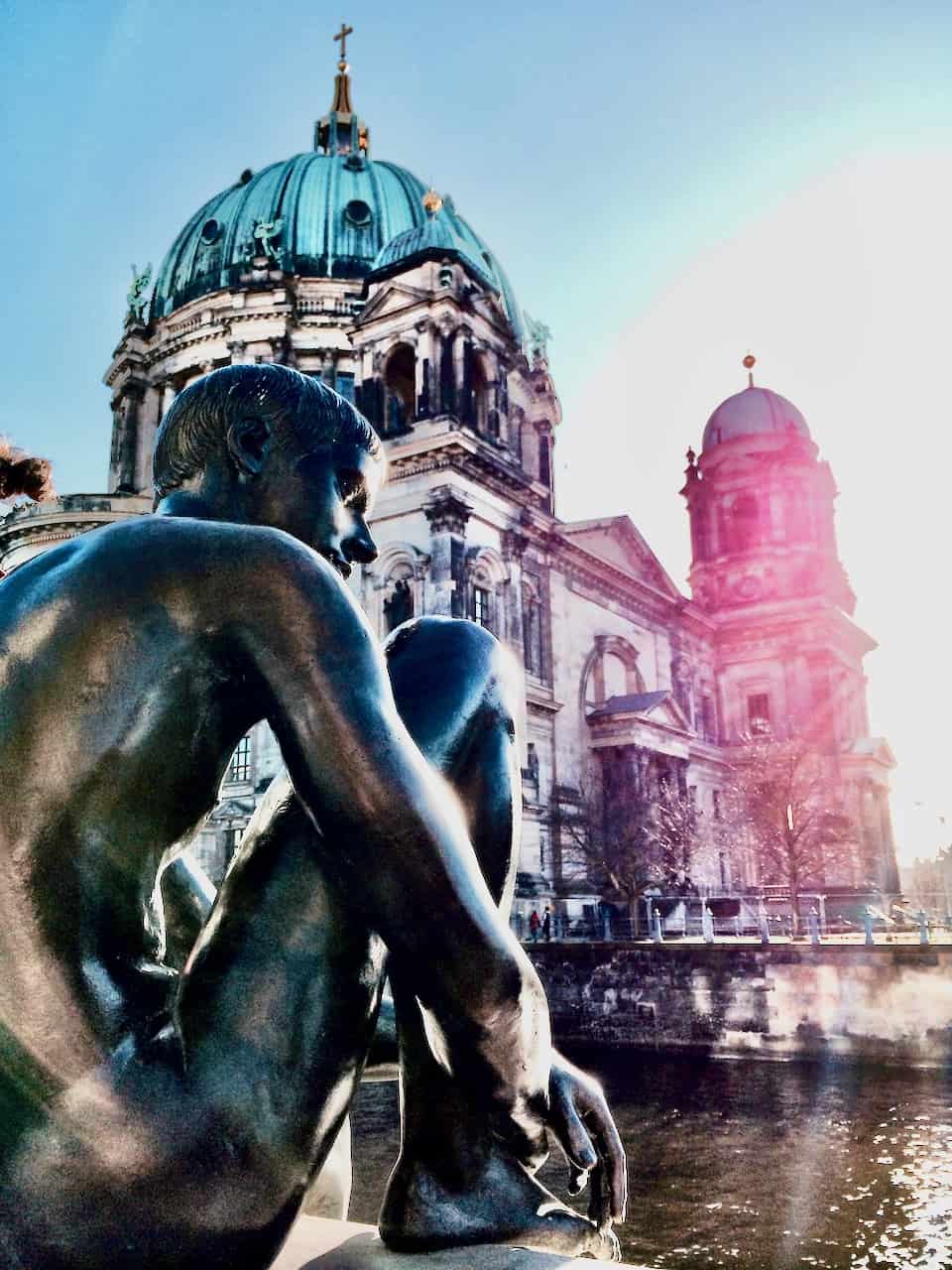
This Northern Germany road trip is a perfect mix of history, culture, and nature. From the fairytale Schwerin Castle to the dramatic cliffs of Rügen, and from ancient Hanseatic towns to Berlin’s buzzing streets, every stop offers something unique. The highlights for me were the beautiful medieval towns, with their rich Hanseatic history, and the lush nature of Rügen.
Read more about other road trips in Germany
velvetescape.com (Article Sourced Website)
#History #nature #Northern #Germany #road #trip
